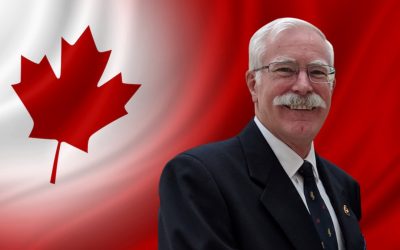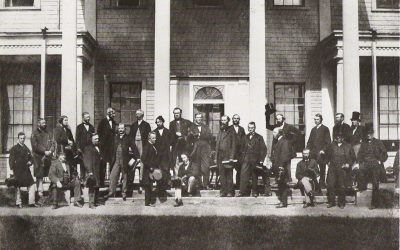IN the middle of what he describes as the worst economic crisis since the Depression, Prime Minister Kevin Rudd has decided to launch a divisive personal crusade against so-called “neo-liberalism”. Rather than economic solutions, Rudd is seeking ideological retribution.
If Rudd is to be believed, all the present problems can be traced back to the “neo-liberal orthodoxy” that dominates economic policymaking. And the solution is a return to social democratic Keynesian policies that existed prior to the mid-70s.
Rudd’s essay has been marketed by its publishers as a unique and lucid insight into the present financial crisis. It is hardly this, anyone familiar with the recent popular works of Paul Krugman, The Great Unraveling, and Joseph Stiglitz, The Roaring 90s: a New History of the World’s Most Prosperous Decade, would be familiar with the Rudd argument.
In Rudd’s version “the current crisis is the culmination of a 30-year domination of economic policy by a free-market ideology that has been variously called ‘neo-liberalism’, economic liberalism, economic fundamentalism, Thatcherism or the Washington consensus.” The political ideology of neoliberals has been “that government activity should be constrained, and ultimately replaced, by market forces”.
The fact that Krugman and Stiglitz, both of whom he quotes, are John Bates Clark medal winners and Nobel laureate economists, which clearly runs counter to his argument of free-market economic policy hegemony, is conveniently forgotten. Indeed, Stiglitz was chairman of president Bill Clinton’s council of economic advisers and also chief economist of the World Bank. There are many Nobel laureate economists who would be horrified to be described as neo-liberal. Economics is not the monolithic ideological edifice Rudd seems to think.
The bulk of his essay consists of a rambling and selective economic history. He criticises tax cuts implemented by “neo-liberal” politicians and neglects to mention significant tax cuts implemented by Democrats such as president John F. Kennedy. He gives credit to the Marshall plan in restoring Europe’s prosperity after World War II but conveniently forgets to mention the complementary liberalisation of Europe markets, particularly in West Germany.
Ultimately, Rudd resorts to the usual interventionist myths to justify his position. The greatest of these, of course, is the myth that Franklin D. Roosevelt’s New Deal policies saved the US from the Depression.
The effectiveness of New Deal policies is a controversial area of economic theory and history. In a recent analysis, historian Burton Folsom Jr points out that while unemployment fluctuated throughout the ’30s, average unemployment in 1939 was higher than in 1931, the year before Roosevelt became president.
He also produces a revealing extract from testimony by Henry Morgenthau Jr, Roosevelt’s treasury secretary, on May 9, 1939 to the House Ways and Means committee: “We have tried spending money. We are spending more than we have ever spent before and it does not work. And I have just one interest, and if I’m wrong … somebody else can have my job. I want to see this country prosperous. I want to see people get a job. I want to see people get enough to eat. We have never made good on our promises … I say after eight years of this administration we have just as much unemployment as when we started … And an enormous debt to boot.”
Morgenthau was a fervent believer in the merits of government intervention; his view is an important warning to all policy makers about the dangers of “neo-interventionism”.
What is not in dispute is that the US Federal Reserve made the Depression worse by mismanaging monetary policy. At the onset of the Depression, the Federal Reserve adopted a deflationary monetary policy that added to its severity. The money supply contracted by nearly one third in the Depression’s first four years. That’s why present Fed chairman Ben Bernanke moved quickly to increase liquidity.
The failure of government-mandated central banks and government regulation provides a more cogent explanation of present financial difficulties than some conspiracy by neoliberal economists. Rudd seems to have an almost religious belief in government infallibility. Like all strong believers, he seems to see only the things that support his view. He criticises Republicans for neo-liberal policies but is silent when Labor or Democrats support similar policies.
In the one case he can’t avoid, the Hawke-Keating governments of the ’80s and ’90s, he praises their commitment to “economic modernisation”. John Edwards, who was a senior economic adviser to treasurer and later prime minister Paul Keating published an analysis of what he called “Australia’s Economic Revolution” in 2000, which describes the economic modernisation as consisting of policies such as the “deregulation of finance and the float of the currency”, “the abolition of capital controls” and the “low inflation” policy.
So deregulation, privatisation, greater market competition and expanded private participation in equity markets through compulsory super, is OK if it’s undertaken by Australian Labor governments, but it is neo-liberal ideology if anybody else does it. All the way through his essay Rudd tries to have it both ways, cherrypicking economic history to support his political prejudices.
The reason the economics profession reassessed its view of Keynesian economic practice had nothing to do with ideological conspiracies. The reality is the stagflation of the ’70s demonstrated conclusively that economic concepts such as the Phillips curve, the assumed trade-off between unemployment and inflation, which were at the core of the neoclassical synthesis didn’t hold. The neoclassical synthesis itself wasn’t overthrown, it was merely re-ordered with a greater emphasis on monetary policy.
Anyone with a rudimentary understanding of economics would be aware the economics of Frederick Hayek and Ludwig von Mises, which explicitly reject activist central banks, are in no way related to the present ruling economic orthodoxy. Mises favoured the gold standard and Hayek believed in the denationalisation of money, private money.
Rudd’s essay displays his superficial reading of economic history. Even in areas where he has a purported expertise such as foreign policy, he fails to comprehend key political distinctions. He makes the extraordinary claim that neo-liberals, Hayek and Mises, are “ideological bedfellows” with neo-conservatives. Nothing could be further from the truth. There is nothing more abhorrent for most neo-liberals than activist foreign policy.
If you look at the present size of the public sector and the level of public spending in Britain, the US and Australia, the only fair conclusion you can draw is that neo-liberals failed to successfully implement their agenda. In all cases the public sector is about the same size, and in the case of Britain and the US, public spending and debt have ballooned. Rather than neo-liberalism, the past 30 years have seen a form of stealth Keynesianism dominate economic policy.
Rudd’s “neo-interventionism” is likely to do more damage to the economy than the past lip service paid by politicians of both political persuasions to market forces.


